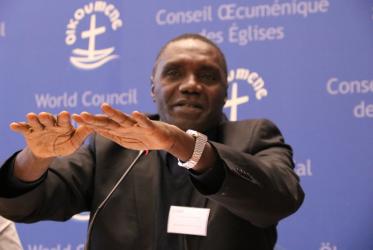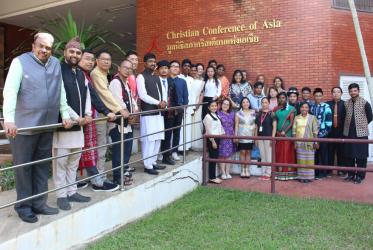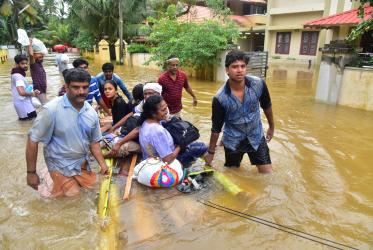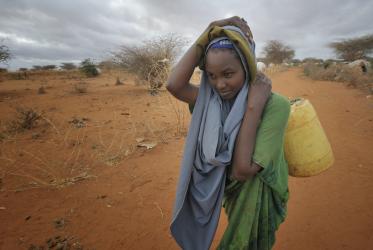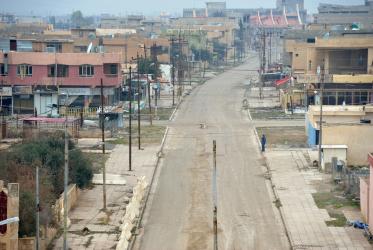Displaying 1 - 20 of 24
Dr Saïd Ailabouni: God is on the side of rejected, oppressed, occupied
12 September 2019
Agreement works toward food security in South Sudan
23 February 2019
Fr Alexi - a peacemaker in Syria
21 December 2018
Third annual Young Ambassadors of Peace in Asia training begins
17 October 2018
WCC promotes Global Day of Prayer to End Famine
06 June 2018
G20 summit: call to pray for peace in Hamburg
07 July 2017
Applications open for WCC Eco-School
10 May 2017
In Lebanon, refugees face hardship - but find hope
16 March 2017
Justice and peace in Africa: Where to start? Where to go?
27 February 2017


